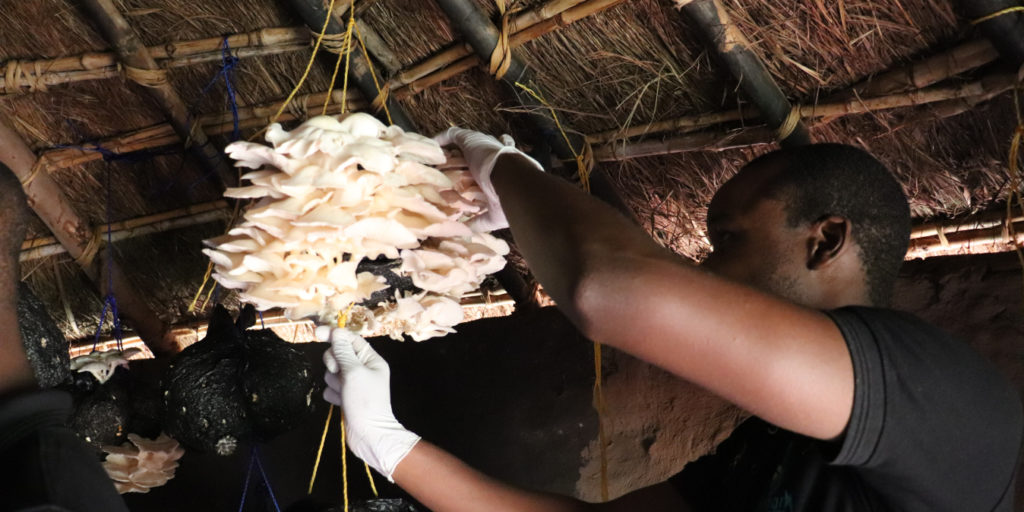Two decades of prolonged conflict and civil unrest have made northern Uganda heavily dependent on food aid and slowed down the economic development of many households. Entrepreneurial mindsets have been brought to a halt, leading to a drastic drop in people’s daily earnings to the extent of not being able to afford a balanced diet. Erratic rainfall patterns in the region and ever-increasing global temperatures have further stirred the need for climate smart initiatives.
A group of students at Gulu University has proven that opportunity resonates where there is distress. Muteti Francisca Ndinda (Kenya), Mainimo Edmond Nyuyki (Cameroon) and Mpofu Taddias Prince (Zimbabwe) are the co-founders of Hallmark Bio-Enterprise. Aiming to support rural women, refugees and out of school youths,the agribusiness offers trainings in how to produce and market organic oyster mushrooms.
The beneficiaries will not only be able to consume the highly nutritious mushrooms, but also earn income and reduce their dependency. As part of its sustainability plan, Hallmark Bio-Enterprise intends to train and promote the use of its solar drying system amongst in order to maintain product quality while minimizing post-harvest losses. In addition, the enterprise plans to conduct trainings and exhibitions on the use of briquettes made from the final waste as an alternative cooking energy source.
Hallmark Bio-Enterprise is a prime example of turning theory into practice. From participating in the Agcelerate Lab 2019 and the ‘Entrepreneurship in Agribusiness’ course co-convened by Gulu University and Agripreneurship Alliance, the latter also leading a SIANI Expert Group aiming to enable young agribusiness entrepreneurs, the students have today managed to sign contractual arrangements with restaurants around Gulu municipality. The students running the agribusiness are looking forward to scaling up and replicating the enterprise in their own countries.
This story is based on an article originally published by the Regional Universities Forum for Capacity Building in Agriculture (RUFORUM). Read the original article.
